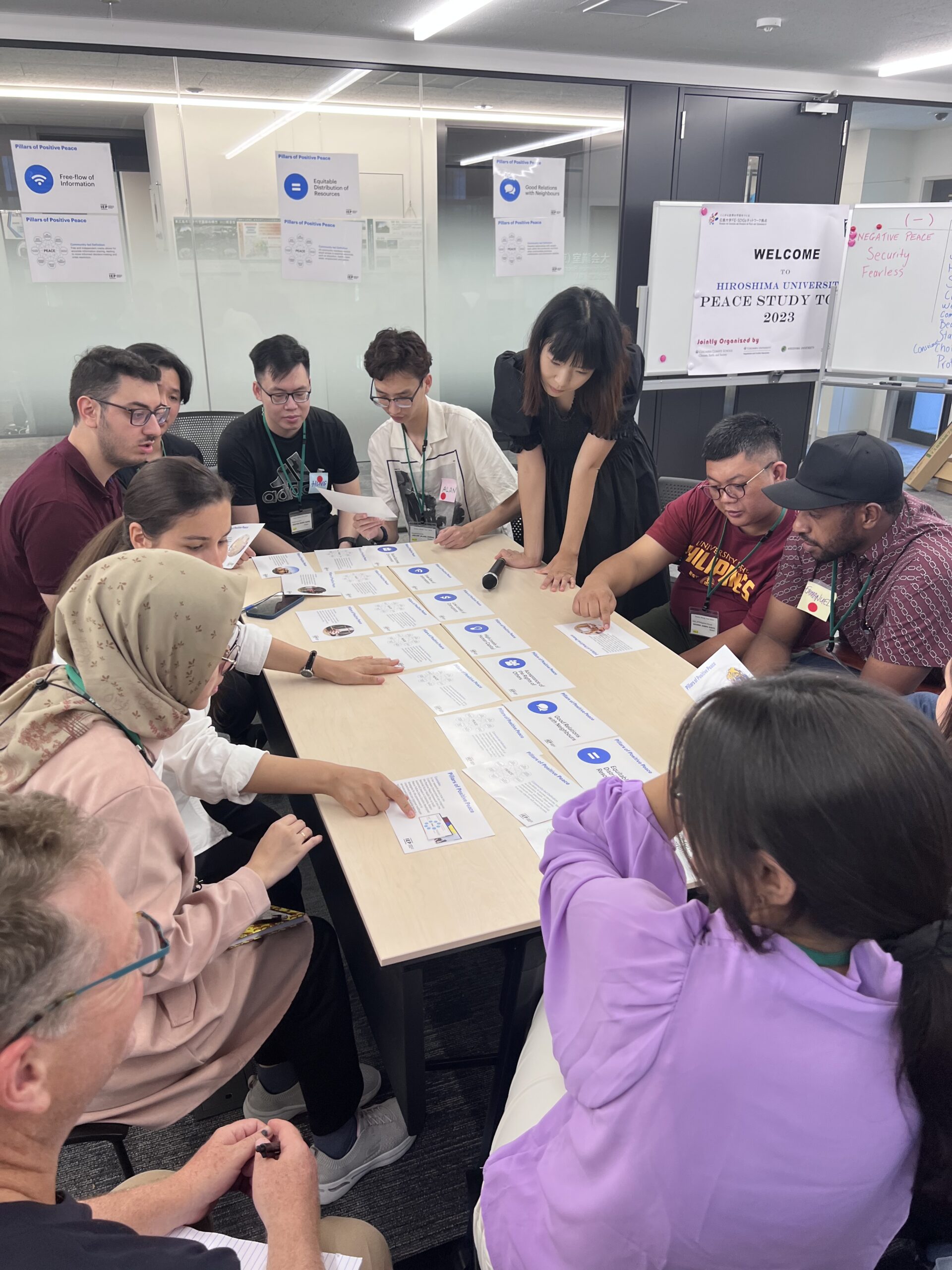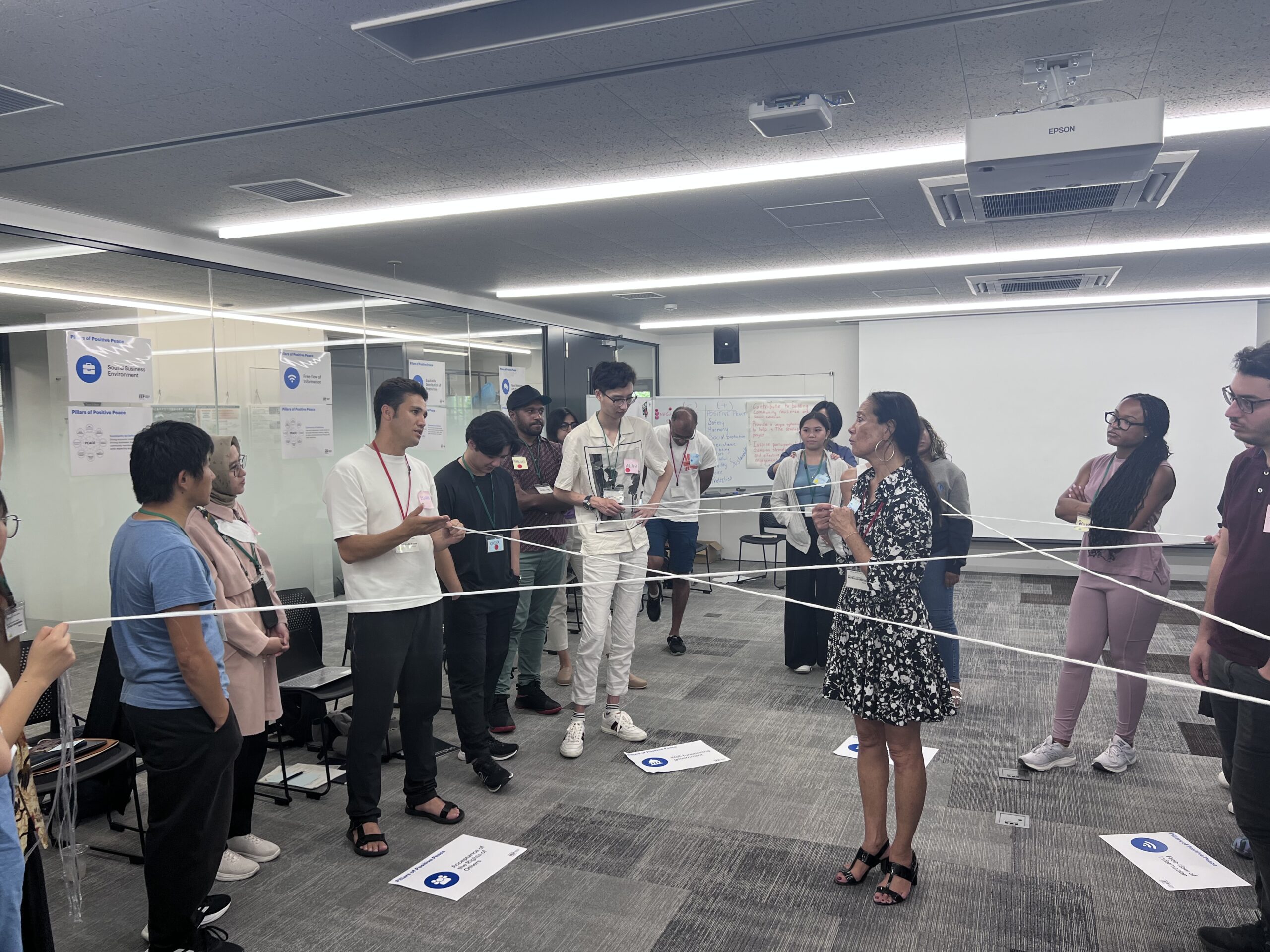On the first of August, 2023 in Hiroshima, Japan the Institute for Economics & Peace conducted a Positive Peace Workshop as part of the Hiroshima University Peace Study Tour, with the objective of advancing Positive Peace and the Sustainable Development Goals provided by UN. Participants in the program came from diverse backgrounds as postgraduate students from Iran, Jakarta, Thailand, Philippines, China, and the United States studying across disciplines with context to conflict studies. Over the following days, students partook in a series of enriching activities such as field visits, lectures, and the Peace Memorial Ceremony.
The IEP Positive Peace Workshop provided an immersive and active engagement for all 30 students to demonstrate a deeper understanding of peace development work through collaborative exercises, presentations, reflections, brainstorming, and analysis. The workshop was formed to highlight students’ academic, professional, and personal backgrounds and invest in them as leading practitioners for Positive Peace.

The workshop began with an exercise called “Pillar Island” followed by discussions on defining peace, the Positive Peace framework, an exercise called “Yarn Game”, and project management. The usual duration of the workshop spans multiple days but was condensed into a single day due to the intensity of the program. However, despite this, students garnered substantial insights and reflections as they continued their studies in Hiroshima following the workshop. Therefore, despite the nature of the workshop, students developed a pragmatic understanding of the Positive Peace framework for real-world context.
In particular, participants enjoyed the “Yarn Game” which demonstrates the intricate connections among the eight pillars of Positive Peace. The exercise includes participants passing around a shared yarn to each other as they delve into the eight pillars of Positive Peace and how their personal, professional, and academic experiences interconnect with one another. In doing so, students began to learn more about each other, and the breadth of humanitarian work the group had already done.
By extension, students began to recognise how the eight pillars integrated into their previous work and the significance of the pillars in shaping the outcomes of their past projects. Students identified acceptance of the rights of others, free flow of information, and equitable distribution of resources as main themes. One participant noted, “The construction of the exercise revealed the systematic nature of thinking about Positive Peace and how critical it is to understand the ecosystem of how pillars influence and connect to each other.”

In addition, participants also enjoyed the project management exercises. The workshop was split into multiple groups to develop a cohesive plan on how to implement the Positive Peace pillars into their communities. In doing so, one participant noted that “in the same way that problems can be systemic, I also think that systemic solutions can also exist.” Another attendee highlighted the significance of collaborating with teammates from diverse global backgrounds, emphasising the need to adopt a global perspective when approaching challenges but taking action locally.
This was demonstrated as they began to share solutions for empowering marginalised women to access healthcare and participants began to brainstorm how within their own communities’ local actions varied and ranged all while contributing to a shared global plan. After the workshop ended participants continued the Peace Study Tour. Throughout the following days, they mentioned how the tools for Positive Peace were critical for development.
They referenced their understanding of the pillars as “tools to be implemented across a lifetime” as they adjusted to the newly learned concepts. Many participants agreed that the workshop’s framework for thinking about solutions is integral and will remain with them throughout their studies.
By the end of the workshop, students agreed that the workshop helped them visualise actions they can take in peace throughout their studies and career. The workshop provided an opportunity for participants to get to know each other as they continued their immersive learning over the following days in Hiroshima.